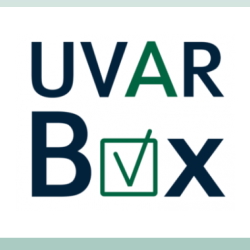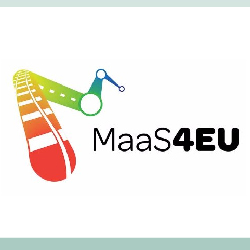- All
- African projects
- assessment
- assessment selected projects
- Assessment selected projects 2
- Assessment selected projects 3
- Assessment selected projects 4
- ASTRA
- Cost Benefit Analysis
- Electric mobility and ITS
- MOMOS
- planning
- planning selected projects
- planning selected projects 2
- planning selected projects 3
- planning selected projects 4
- planning selected projects 5
- projects
- Railways projects
- research
- research selected projects
- research selected projects 2
- research selected projects 3
- studies
- studies selected projects 1
- studies selected projects 2
- studies selected projects 3
- studies selected projects 4
- studies selected projects 5
- TRTingegneria
- TRUST
- urban mobility
- User-friendly information tool on urban and regional vehicle access regulation schemes UVAR-BOX is the EU project which has been established to tackle fragmented or unavailable information on up-to-date and relevant UVARs (Urban Vehicle Access Regulations) policies in European cities. The 24-month project successfully ended in 2023 and developed the Datex II standard for UVARs and a tool, the UVAR-BOX, to facilitate the input of UVAR data into the Datex II standard, which can be read automatically by navigation systems and mobile applications available to European drivers. UVAR policies pursue various objectives such as improving air quality, livability and reducing congestion. The project aimed to harmonize and disseminate information on UVAR policies in fleet management tools and navigation devices. Its widespread application and use will support both road users to plan journeys across the EU, and local authorities and Member States to set up standardized communication procedures in line with European regulations on the dissemination of mobility-related information (ITS directive and single digital gateway). TRT, as part of a large consortium, had the role of Italian Country Coach to support Italian public administrations in this digitization process. For more information Project brochure – Link Country Coaches web page – Website DATEX II: the standard for traffic and mobility information – Video
- COG-LO – COGnitive Logistics Operations through secure, dynamic and ad-hoc collaborative networks The main goal of COG-LO, an innovative project on ICT logistics solutions funded by the European Programme Horizon 2020, was to create the framework and tools to implement cognitive and collaborative ICT solutions on future logistics processes, embracing many contexts and environments. By exploiting COG-LO, it was possible to achieve several benefits, such as: increase the load factor, reduce the cross-border parcel delivery costs, reduce the ratio between distance covered by the logistic vehicles and the number of pickups, implement quick adaptive response management to dynamic customer requirements. The project outcomes were validated in three different pilots, covering multi-modality, inter-country deliveries and urban logistics operations. The international partnership involved 14 public and private actors working both in transportation and ICT fields across eight European countries. TRT leaded WP2 (Cognitive logistics framework), capitalizing on its vast experience on freight transport and logistics research projects. It also brought its long experience in the field of quantitative analysis, strategic planning, KPIs assessment by supporting the technological requirements analysis in one of the pilots developed along the project (the EKOL case on intra-terminal operations and multimodality solutions). [tw_button icon=”” link=”https://www.trt.it/archivio-progetti/” size=”small” rounded=”false” style=”flat” hover=”default” color=”#223468″ target=”_self”]Projects[/tw_button]
- The Impact Assessment study, developed for the European Commission, aims to identify and assess the impacts of policy measures on facilitating the deployment of multimodal ITS services By enabling communication between vehicles, infrastructure and other road users, Cooperative Intelligent Transport Systems (C-ITS) can greatly improve safety and efficiency in road transport. Here is a look at some of the most recent developments in C-ITS and how quickly the technology could change the way we drive and interact with each other in traffic. The wide-scale deployment of Cooperative Intelligent Transport Systems could contribute to delivering several Commission’s objectives for transport, such as those on safety, reduced congestion, enhanced mobility and environmental performance. Together with Ricardo Energy&Environment, TRT supported the Directorate for Mobility and Transport of the European Commission in three different studies over a six year period. In 2020-2021 for the development of an Impact Assessment Support Study for the revision of the Intelligent Transport Systems Directive (2010/40/EU) to support the EC with evidence-based analysis. In 2017-2018 developing the legal framework required to support the widespread deployment of C-ITS services in Europe by 2019: a set of policy options and deployment scenarios were assessed with the European scale modelling tools ASTRA and TRUST for the analysis and comparison of the impacts in terms of economic, environmental and social indicators. In 2015 for the preparation of the Communication strategy and the Action plan for the deployment of C-ITS in Europe, providing the analysis of costs and potential benefits based on different scenarios. To support the analysis, the ASTRA and TRUST models are applied to provide quantitative indicators to evaluate the impacts of various policy options and deployment scenarios. For more information Final report of 2015 study Final report of 2017-2018 study
- End-to-End Approach for Mobility-as-a-Service tools, business models, enabling framework and evidence for European seamless mobility MaaS4EU project’s objective is to explore the concept of Mobility as a Service (MaaS) which represents a radical change in the mobility sector. In this concept the mobility integrator (MaaS Operator) brings together differents mobility service providers (Mobility Service Provider) and provides the end-users with access to an integrated digital interface (MaaS4EU Mobility Platform), allowing them to plan and pay for their trips in a one-stop-shop. Maas4EU aim is to deeply analyze the possibilities for the implementation of the Maas concept and set the framework by defining sustainable business models that support the cooperation across transport stakeholders, understanding user needs and choices, implementing the required technological infrastructure and identifying the enabling policy and regulatory frameworks The project focuses in particular on the four key aspects related to: TRT’s activities within the MaaS4EU project mainly focused on supporting the design of the Business Models related to the 3 pilot projects. TRT analysed the legal and policy framework enabling the MaaS ecosystems. TRT was also responsible for the communication and dissemination activities of the project. MaaS4EU foresees 3 real life demos in the following areas: Budapest (Toll Service is the MaaS operator) (Urban & Cross-border trips) Greater Manchester (TFGM is the MaaS operator) (Urban & Intercity trips) Luxembourg (SLA is the MaaS operator) (Cross-border & Urban trips) For more information MaaS4EU – Pich presentation MaaS4EU – Brochure Final conference and video recording of the event Paper: Mobility-as-a-service: insights to policymakers and prospective MaaS operators Mobility as a Service (MaaS) and Sustainable Urban Mobility Planning – Topic Guides, Guidelines for developing and implementing a Sustainable Urban Mobility Plan (2nd edition) – Year 2019 Making European cities greener, Towards clean and smart mobility – Horizon 2020 – Year 2019




